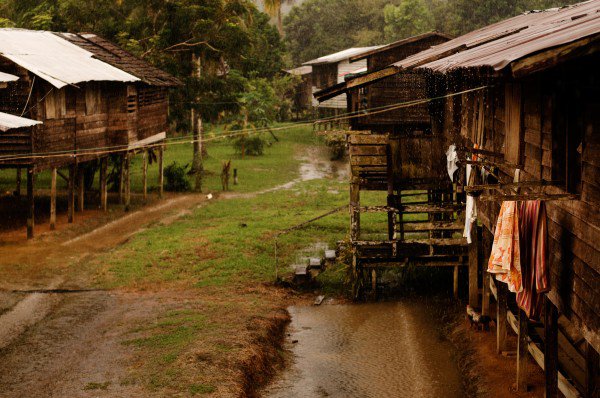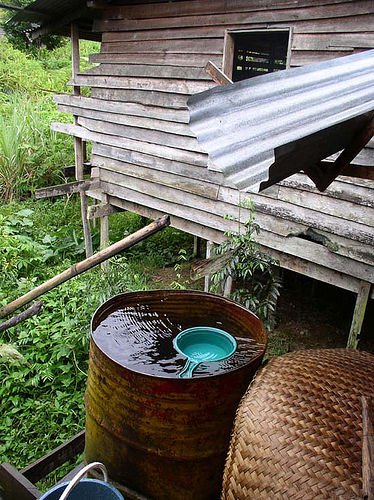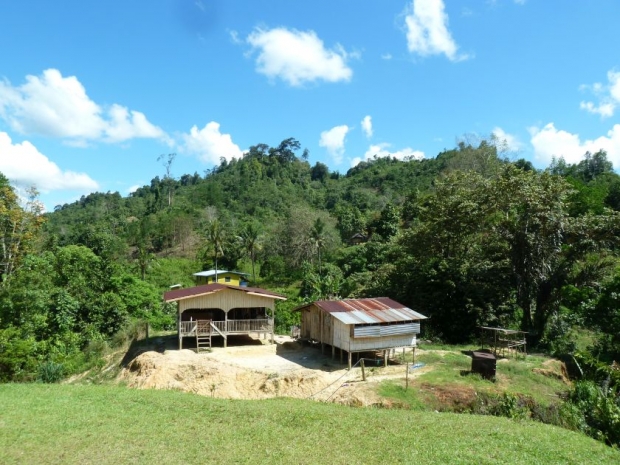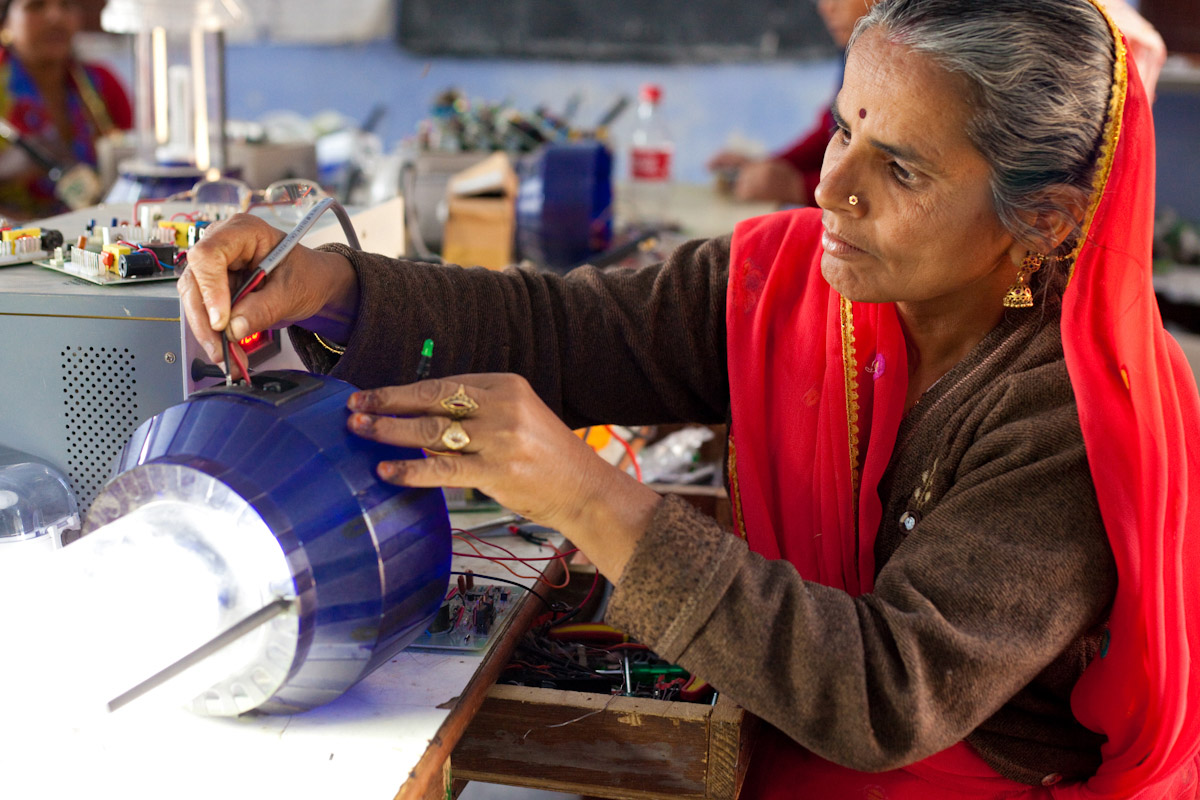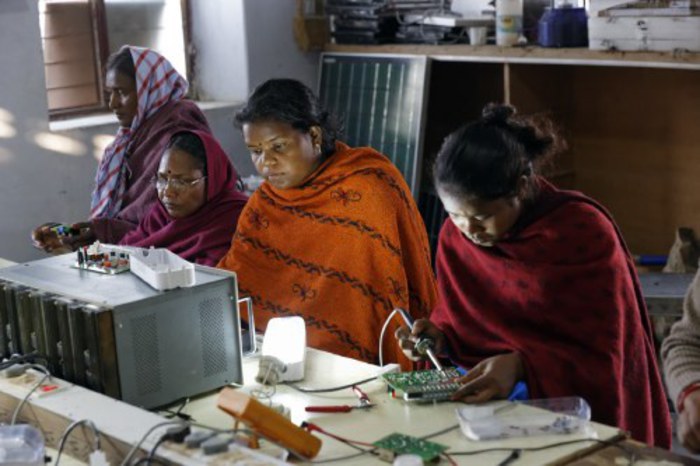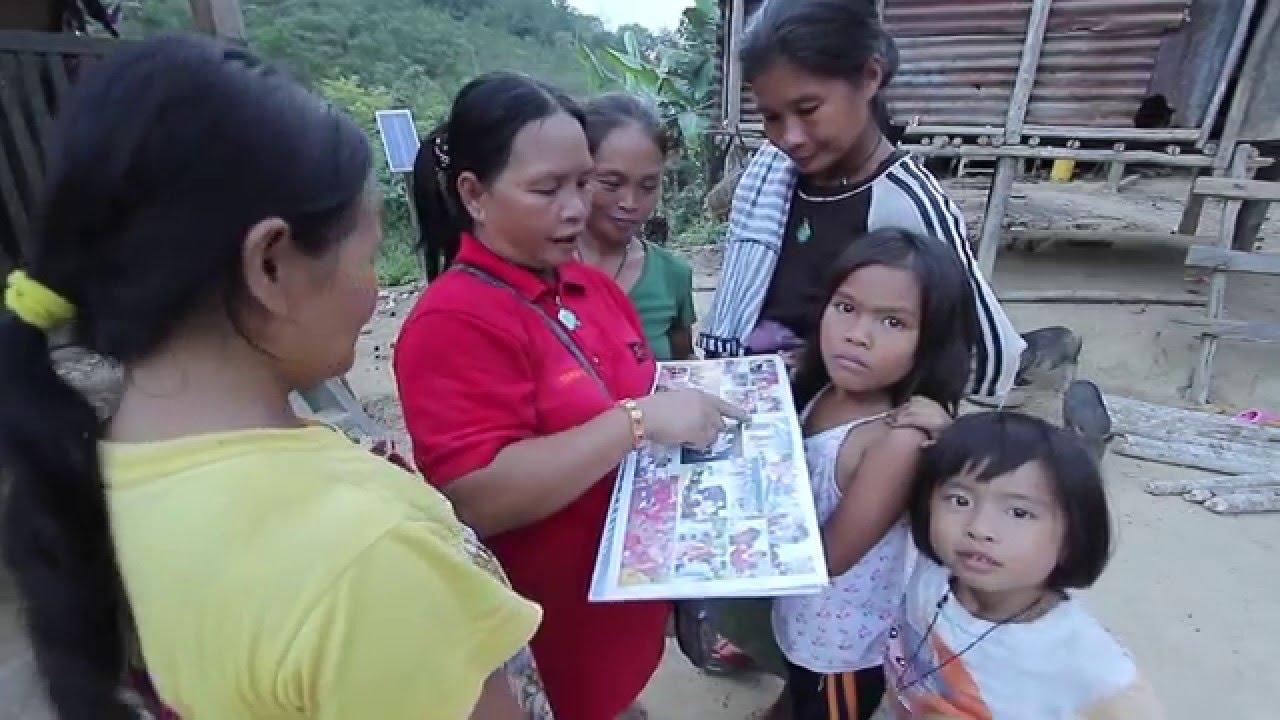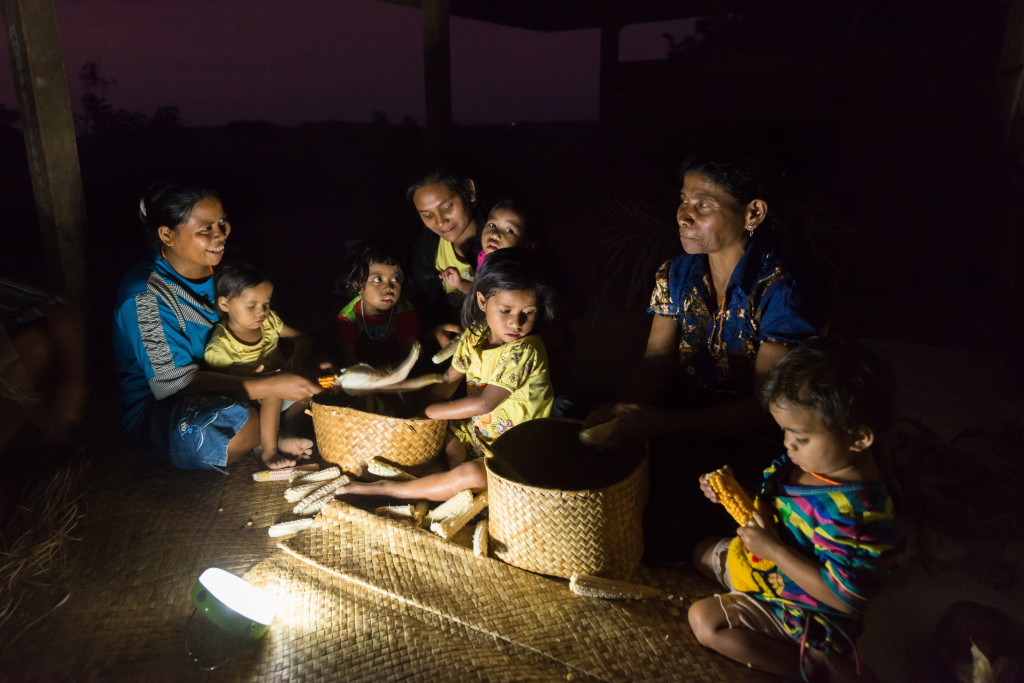Illiterate Sabahan Grandmother Brings Electricity To Rural Village For The First Time
She has brought electricity to 100 homes in Sonsogon Magandai, lighting up their lives and paving a bright path for sound development.
While we huff and puff and complain about the extreme heatwave and global warming, hundreds of people in rural Malaysia spend their nights in darkness, cut away from the most basic necessities including water and electricity
It is common knowledge that major parts of the nation still remains underdeveloped, disconnected and abandoned while rulers of the country continue their big discussions about moving into becoming a first world nation.
The number of skyscrapers increase, more highways are built, and the fight for better internet connection is louder than ever. What's really interesting is that, simultaneously, a large number of Malaysians are still using oil lamps to light up their houses, walking for more than half a day for a pail of water and and unable to get a decent education.
This topic might seem mundane and repetitive for many, but that is precisely the point- it has been spoken about and reported on so many times over the years, but little have been done to improve the situation.
It is undeniable that the government and elected representatives are starting to pay more attention to these forgotten communities, but as history proves it, true development comes with years of continuous work
Most people in rural villages survive by collecting rainwater and they most often do not have running water supply
Image via Malaysia Flip Flop BlogOn 6 January, Prime Minister Datuk Seri Najib Razak announced that the government will be refurbishing six rural schools using the thrifty Industrialised Building System (IBS).
Moving forward, the government has also allocated RM515 million in Budget 2016 to improve overall electricity supply in Sabah.
As part of their initiative to improve lives in rural Malaysia, DAP launched Impian Malaysia in 213, an organisation that uses innovate projects to bring basic necessities to various underdeveloped villages in Malaysia.
Breaking boundaries and stereotypes, in comes a 40-year-old grandmother of nine from Kampung Sonsogon Magandai in northern Sabah.
After spending all her life at one of Sabah's most disconnected places, Tarihing Masanim successfully became Malaysia's first 'barefoot engineer'.
Tarihing Masanim
Image via Sabah Women Entrepreneurs and Professionals Association via The Malay Mail OnlineA 'barefoot engineer' is the term used by the The Barefoot School, referring to their 'graduates' that have completed the six months program on an array of subjects including solar engineering, mechanics, public health and dentistry.
According to an extensive report on Tarihing's amazing journey by The Malay Mail Online, the grandmother has never set foot in a school or left her remote village.
Having been a rubber-tapper for most of her adult life, Tarihing and her husband earn about RM100 to RM200 per month and spend about RM60 from their earnings on the rubber tapping supplies like diesel and battery. The poverty line in Sabah is set at RM1,170.
Her life took a dramatic turn in 2014 when the Sabah Women Entrepreneurs and Professionals Association (SWEPA) sent her to India's Barefoot College under the 'Grand Solar Engineer' program.
What are the living conditions like at Tarihing's village?
Kampung Sonsogun Magandai in northern Sabah is located about 5 hours away from the nearest town
Image via Sabah Women Entrepreneurs and Professionals Association via The Malay Mail OnlineLike most villagers, they (Tarihing and her husband) farm their own vegetables like sweet potato and tapioca to eat and occasionally feed the leftovers to the free-range chickens and pigs running around the lush, green hills between the sparsely populated village punctuated with log bridges around the Magandai river.
The village, though picturesque, is cut off from most basic necessities like electricity, water, health care and education, mainly because it takes at least a five-hour bone-rattling drive to the nearest village of Kota Marudu — and that is only with the elements of daylight and good weather.
Each trip out of the village on a chartered four-wheel-drive vehicle costs about RM40 each way.
How does the 'Grandma Solar Engineer' program help rural communities?
'Tarihing Masanim (centre) with other participants of the “Grandma Solar Engineer” programme from Barefoot College in India'
Image via Sabah Women Entrepreneurs and Professionals Association via The Malay Mail OnlineThe program, introduced by the Barefoot College, has been up and running since 2004. It basically teaches illiterate, elderly women to install solar panels and link them up to batteries, so that they would be able to replicate it in their own villages.
Having never even owned a pair of footwear, Tarihing flew to India on 15 September 2014, ready to take on the world and bring about change in her village.
"I'm just so grateful that I get to have this experience, even after the other ladies dropped out. I’m sure they will regret not taking the opportunity.
"Some of the villagers were afraid that I would forgotten and left in India too, but I refused to listen to all the talk and I have trust in the organisers," Tarihing said before she left, according to quotes provided to Malay Mail Online from Yap Li Ling, an AFCS project manager.
Tarihing's journey was supported by the Sabah Women Entrepreneurs and Professionals Association (SWEPA), Asian Forestry Company Sabah (AFCS), Raleigh International, Partners of Community Organisations in Sabah, GEF Small Grants Programme-UNDP, Sabah Credit Corporation and the Malaysian government.
What did the Barefoot College teach the courageous and determined grandmother from Sabah?
During their six months of training, the women are taught by other semi-literate and illiterate women:
1) To handle sophisticated charge controllers and inverters (solar cells produce direct current (DC) which is converted into standard alternating current (AC) using an inverter),
2) To install solar panels and link them to batteries,
3) To build solar lanterns and
4) To establish a local electronic workshop where they can carry out all major and minor repairs to the solar power system themselves.
What is the Barefoot College?
The Barefoot College is an organisation started in 1972 by Sanjit Bunker Roy, a popular Indian social activist that aims to uplift rural communities throughout the world with the power of education and self-sustainability.
Located in Tilonia, Rajasthan, this revolutionary college specifically educates the ones that are in dire need of life-improvement and education, namely the "drop-outs, cop-outs and wash-outs".
In a TED talk titled 'Learning from a barefoot movement', Roy explained that the idea was born out of Gandhi's philosophy and way of life that focuses on the importance of self-reliance. The classrooms are made from dirt floors and have no chairs, just so that the students from less-privileged communities feel comfortable.
The students are taught a variety of things from reading, arithmetic to skills such as installing, building and repairing solar lamps. They receive 6 months worth of training about solar panels that will help them to light up their own villages when they return home.
Tarihing successfully graduated in March 2015, and returned home to her native village as Malaysia's first 'barefoot solar energy engineer'
Tarihing photographed with all the solar equipment needed for her village
Image via SWEPA Barefoot Solar Project BorneoHaving been identified as a part of the Barefoot Solar Project, each household in Kampung Sonsogun Magandai will be provided with a solar system and a rechargeable lantern.
Tarihing has been trusted with the responsibility of providing electricity for the whole village through the solar system based on her education at the Barefoot Collage.
According to the Malay Mail Online, she will also be paid an undisclosed amount of monthly allowance for her role as the guardian of the village's power supply.
Thanks to all the joint support of the local organisations and the Barefoot collage's 'Grandma Solar Engineer' program, Tarihing has brought electricity to 100 homes in Sonsogon Magandai, lighting up their lives and paving a bright path for sound development
On another note, after decades of promises and plans drawn to improve the schools in East Malaysia, most schools in rural Sabah and Sarawak are still in shambles:
